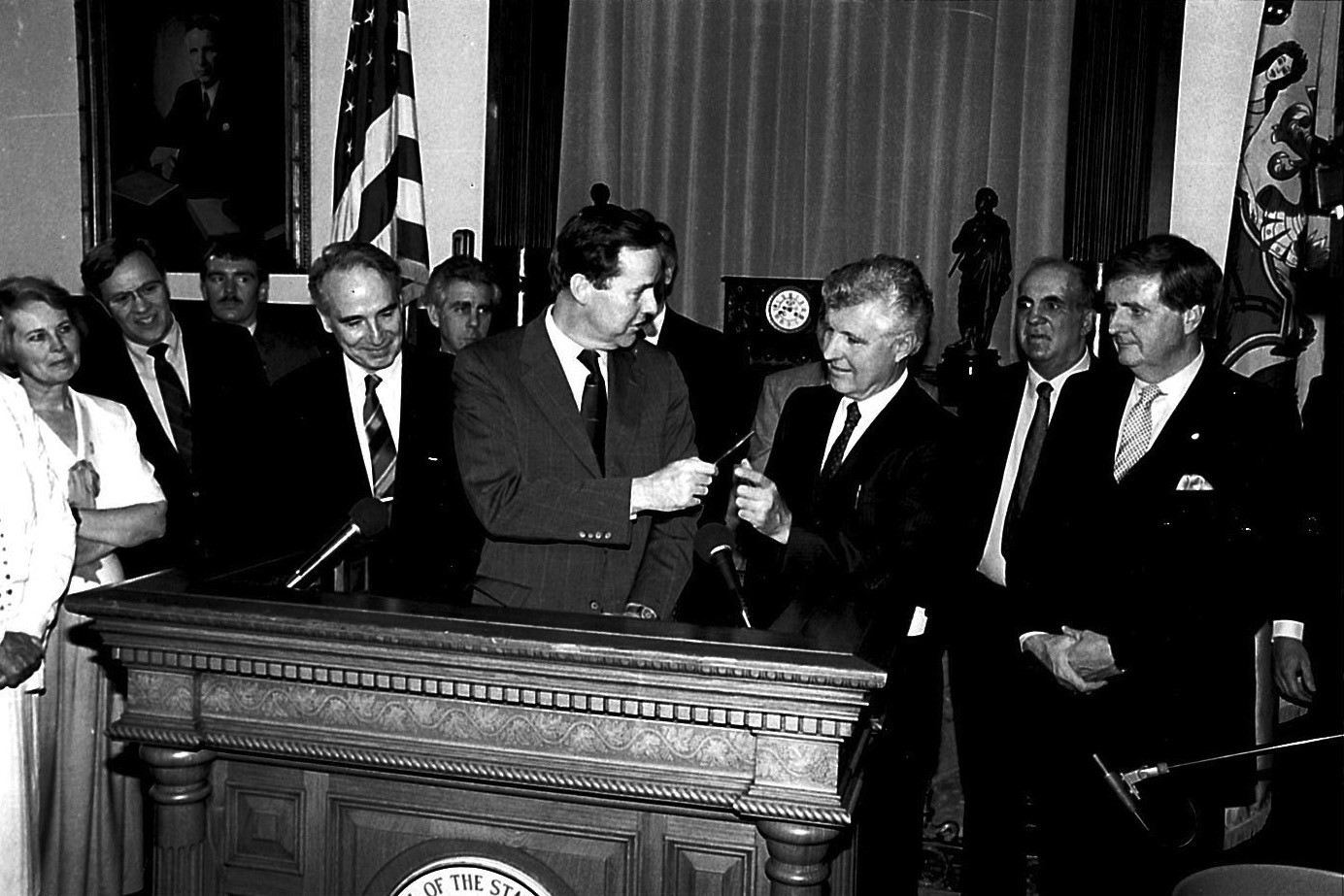May 12, 2020
DEP Milestones: It’s 1987,
New Jersey Is First State to Mandate Comprehensive Recycling

Governor Tom Kean, after signing the New Jersey Statewide Mandatory Source Separation and Recycling Act on April 20, 1987, hands the pen he used to state Sen. Paul Contillo, one of the bill’s sponsors.In the Garden State, about 44 percent of municipal waste collected at curbside is recycled. And, as the recycling industry grows more specific – what is recyclable, what must be tossed, what will be rejected – New Jersey continues its efforts to help residents discern what can and cannot go in the recycling bin.
Newspapers? Yes. Glass containers? Yes. Empty pizza box? No. Disposable diapers? No.
The “no” items (and there are many more than mentioned here) are considered contaminants, which adversely affect the recycling stream because they can jam up processing equipment at recycling centers, and because they can pose health and safety threats to recycling center workers.
Consider this, too: Recycling is a sector that employs 27,000 people and adds nearly $6 billion to New Jersey’s economy.
So, be sure to separate your recyclables from your trash carefully. If you need information about local recycling program requirements, turn to Recycle Coach. The free app is available from the App Store or Google Play, and is accessible through participating municipal and county websites, the DEP website at www.nj.gov/dep/dshw/recycling and through digital assistants.
To learn more about Recycle Coach, visit https://solutions.recyclecoach.com.
And now, a look at 1987 …
On April 20, 1987, New Jersey became the first state to institute comprehensive statewide mandatory recycling, with the passage of the New Jersey Statewide Mandatory Source Separation and Recycling Act. This was a milestone in the state’s solid waste management history and established New Jersey as a national leader in the field.
The law set forth an ambitious program that reshaped the way New Jersey residents, businesses and institutions would manage waste. Among its provisions, the Recycling Act required New Jersey’s 21 counties to develop plans that mandated the recycling of at least three designated recyclable materials – in addition to leaves, which were to be composted or mulched on-site or at a leaf-composting facility. County recycling plans also were required to designate strategies for the collecting, marketing and disposal of recyclable materials. And municipalities were expected to designate a municipal recycling coordinator and provide for a collection system for materials to be recycled based on county recycling plans.
* Gratitude to the DEP’s recycling titan, Steve Rinaldi, of the Bureau of Sustainability, who submitted this item and the great throwback photo. Steve had been hired by the DEP just one month prior to the signing of the recycling bill.
###